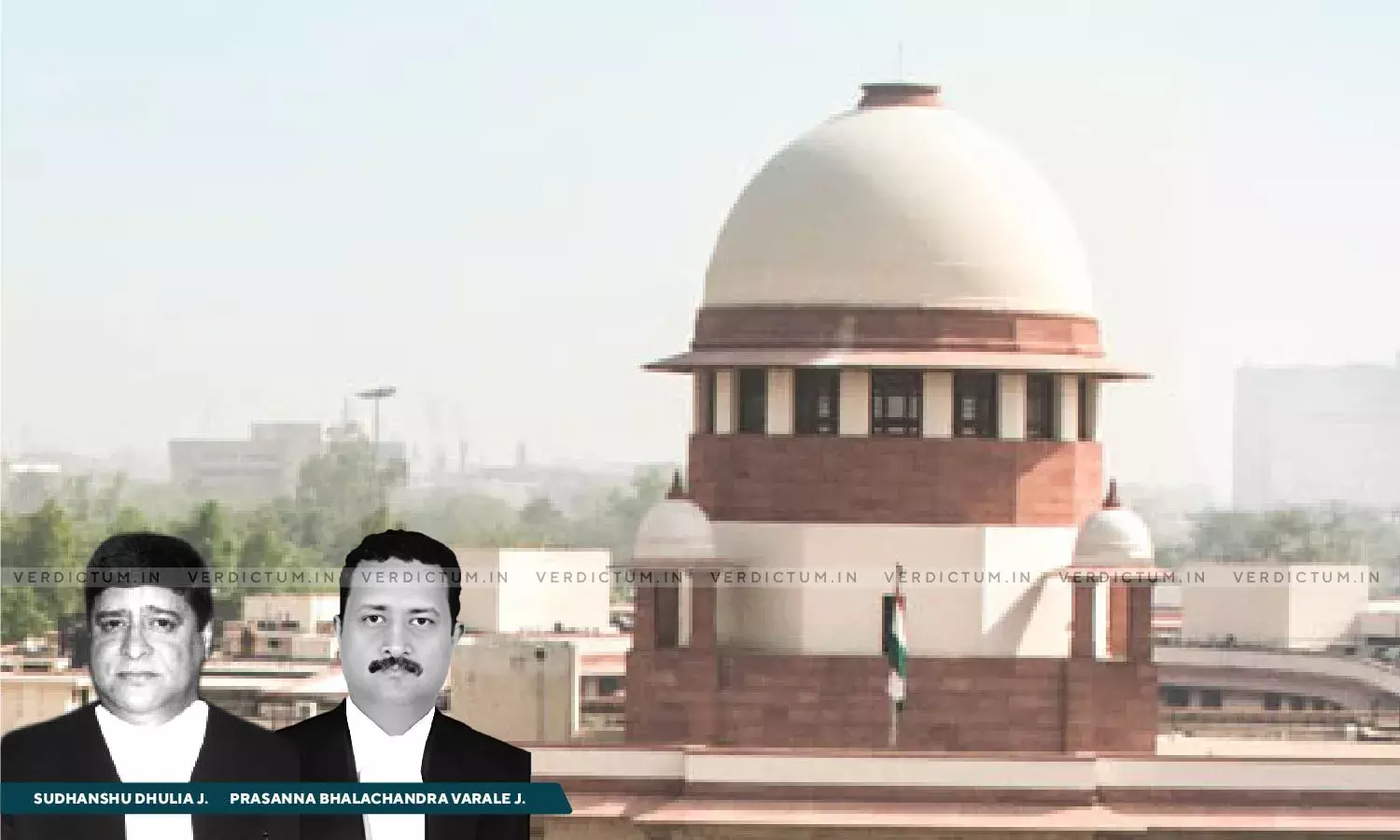Limited Rights Of Transferee Pendent Lite Can’t Obstruct Full Claim Of Decree Holders To Execute Decree In Their Favour: Supreme Court
The appeal before the Supreme Court arose from the judgement of the Madras High Court dismissing the revision petition in a property dispute matter.

The Supreme Court held that the limited rights of the transferee pendent lite cannot be stretched to obstruct and resist the full claim of the decree holders to execute the decree in their favour.
The appeal before the Apex Court arose from the judgement passed by the Madras High Court dismissing the revision petition filed by the appellant.
The Division Bench comprising Justice Sudhanshu Dhulia and Justice Prasanna B. Varale observed, “The High Court rightly observed that the Courts have uniformly held that the limited rights of the transferee pendent lite on the principle of lis pendens. Such limited rights cannot be stretched to obstruct and resist the full claim of the decree holders to execute the decree in their favour. In fact, the Courts have deprecated such obstruction.”
Factual Background
One Chenmougam Aroumugam, the father of the respondents had purchased half share of ‘A’ Schedule property under a sale deed. In 1977, the father purchased ‘B’ Schedule property and executed a sale agreement about ‘B’ Schedule property in favour of the appellant. The balance amount of Rs.20,000 was left unpaid and the appellant was put in possession of the ‘B’ schedule property. When the father died, the first eight respondents filed a suit against the ninth respondent and the appellant to declare that the two Wills executed by their father in favour of the ninth respondent were void and unenforceable.
The Principal Subordinate Judge passed a decree in favour of respondent Nos. 1 to 8 and declared them as the rightful owners of the 7/8th share of ‘A’ schedule property and absolute owners of ‘B’ schedule property. Meanwhile, the Executing Court allowed the application for execution and directed the delivery of possession of ‘B’ Schedule property by the appellant. The High Court while dismissing the review petition of the appellant observed that the decree was modified by the Appellate Court and hence the doctrine of ‘merger’ came into effect. Therefore, the question of executing the decree immediately would not arise. Aggrieved thereby, the appellant approached the Apex Court.
Reasoning
The Bench upheld the view of the High Court that irrespective of the fact whether there was modification or not, once the decree and judgment was passed by the Appellate Court, the decree and judgment of the Trial Court merged with the same. The Bench also concurred with the High Court’s rejection of the appellant’s contention that there was an inordinate delay.
Next came the aspect of applicability of Section 53A of the TP Act. The Bench noted that the Revision Petitioner knowing the pendency of the suit, had entered into an agreement with the father of the respondent Nos.1 to 8 and he could not have better and valid rights over the rights of the original transferer and in that situation, no recourse could have been taken.
Further referring to the judgment in Chandi Prasad & others versus Jagdish Prasad & others (2004) wherein it has been observed that the merger of a decree takes place irrespective of the fact as to whether the Appellate Court affirms, modifies or reverses the decree passed by the trial court, the Bench said, “It may not be out of place to refer to the judgment of this Court in support of the submission that the Trial Court decree was merged in the decree passed by the Appellate Court.”
Thus, finding the appeal to be devoid of merit, the Bench dismissed the same.
Cause Title: Raju Naidu v. Chenmouga Sundra & Ors. (Neutral Citation: 2025 INSC 368)

